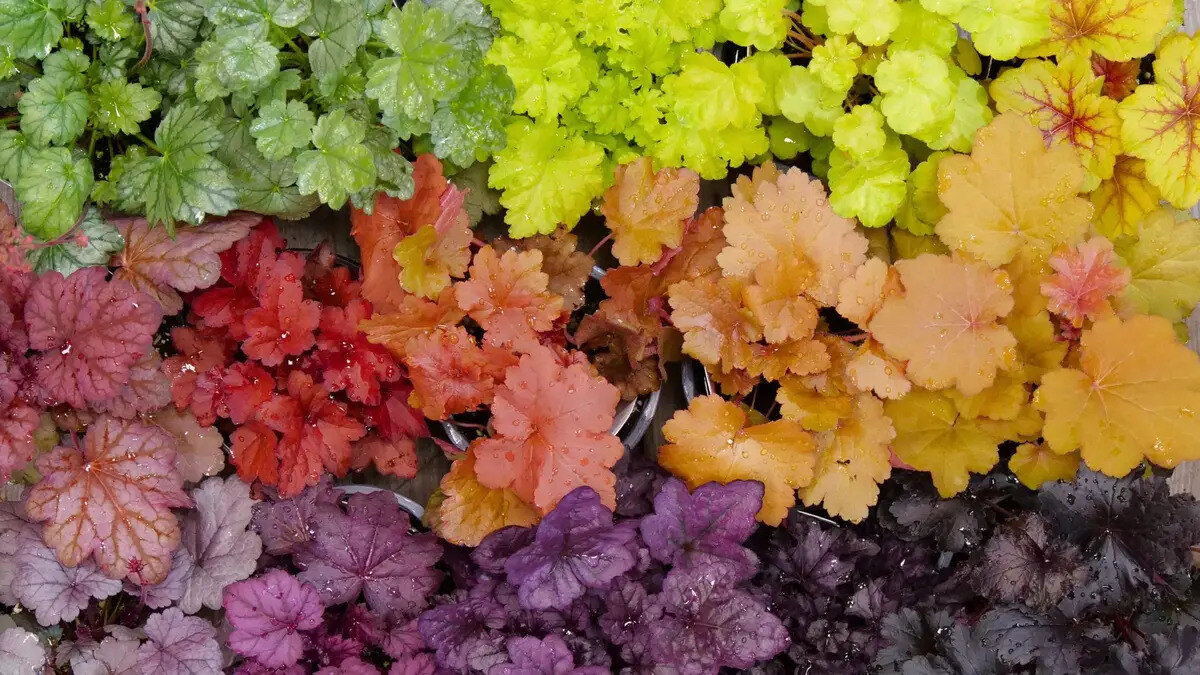
Coral bells, also known by their scientific name Heuchera, are exotic and visually stunning plants that have captivated garden enthusiasts for centuries. With their vibrant hues and delicate bell-shaped flowers, these plants add a touch of elegance and charm to any garden or landscape.
But there is more to coral bells than meets the eye. Beyond their breathtaking beauty, these plants possess some mind-blowing facts that might surprise even the most avid plant lover. From their fascinating origins to their extraordinary adaptations, coral bells have a unique story to tell.
In this article, we will delve into the world of coral bells and uncover nine mind-blowing facts that will deepen your appreciation for these captivating plants. So, get ready to be amazed as we explore the incredible world of coral bells!
Key Takeaways:
- Coral Bells come in a variety of striking colors and are easy to grow, making them a perfect choice for both experienced and novice gardeners. They also attract important pollinators like bees and butterflies, supporting the ecosystem.
- Some varieties of Coral Bells have edible leaves that add a unique flavor to culinary creations. Their long blooming period and symbolic meanings make them a captivating addition to any garden, bringing beauty and positive energy.
The Striking Colors of Coral Bells
Coral Bells, also known as Heuchera, are revered for their stunning foliage colors. With shades ranging from deep purple and vibrant red to lime green and caramel, these plants bring a pop of color to any garden or landscape. The unique hues of Coral Bells make them a favorite among gardeners and plant enthusiasts.
Adaptability Across Various Climates
Coral Bells are known for their versatility and adaptability to different climatic conditions. Whether you live in a hot and arid region or a cooler and more humid climate, there is a variety of Coral Bells that will thrive in your garden. This adaptability makes Coral Bells a popular choice for gardeners across the globe.
Low Maintenance and Easy to Grow
If you’re a beginner or have a busy schedule, Coral Bells are perfect for you. They are low maintenance and require minimal care. These hardy plants are disease-resistant and not prone to many pests, saving you time and effort in their upkeep. With their easy-going nature, Coral Bells are an excellent choice for both experienced and novice gardeners.
Attracts Pollinators
Coral Bells produce delicate flowers on tall stalks, which not only add visual appeal but also attract important pollinators such as bees and butterflies to your garden. By planting Coral Bells, you are helping to support the ecosystem by providing a food source for these beneficial insects.
Edible Leaves for Culinary Delights
Did you know that some varieties of Coral Bells have edible leaves? Their foliage adds a hint of tangy flavor to salads and other culinary creations. Not only are Coral Bells beautiful to look at, but they can also tantalize your taste buds, adding a unique twist to your dishes.
Long Blooming Period
Coral Bells bloom for an extended period, providing a continuous display of color in your garden. From late spring to early fall, you can enjoy their charming flowers, adding beauty and vibrancy to your outdoor space. The prolonged blooming period of Coral Bells ensures that your garden remains a captivating sight throughout the seasons.
Perfect for Borders and Containers
With their compact size and eye-catching foliage, Coral Bells are ideal for border plantings and containers. Whether you want to create a colorful edge along a pathway or add visual interest to your patio, these versatile plants are a fantastic choice. Their vibrant colors and compact growth habit make them stand out in any garden setting.
Variety of Shapes and Sizes
Coral Bells come in various shapes and sizes, providing endless options for garden design. From large, sculptural leaves to delicate, lacy foliage, there is a Coral Bells variety to suit every preference. You can mix and match different types to create a dynamic and visually appealing garden display.
Symbolic Meanings
In different cultures, Coral Bells carry symbolic meanings. They are often associated with grace, beauty, and admiration. Some believe that having Coral Bells in their garden can bring good luck and positive energy to their lives. By cultivating these plants, you can add a touch of symbolism and significance to your outdoor space.
Conclusion
In conclusion, coral bells are fascinating plants that offer a wide range of benefits and interesting characteristics. They can add beauty to your garden with their vibrant foliage and delicate flowers. Coral bells are also low-maintenance, making them a perfect choice for both experienced gardeners and beginners.
From their ability to attract pollinators to their medicinal properties, coral bells are truly remarkable. Whether you’re looking to enhance your garden or want to learn more about these amazing plants, exploring the fascinating facts about coral bells will deepen your appreciation for their unique qualities.
So, don’t miss out on the opportunity to incorporate coral bells into your garden and enjoy all the beauty and benefits they have to offer!
FAQs
Q: Are coral bells a type of coral?
A: No, coral bells (Heuchera) are perennial plants that belong to the Saxifragaceae family. Despite their name, they are not related to coral, but rather to flowering plants.
Q: Can I grow coral bells in containers?
A: Absolutely! Coral bells are well-suited for container gardening. Just make sure to choose a container with good drainage and provide regular watering and fertilization to keep them healthy.
Q: How do I care for coral bells?
A: Coral bells prefer partial shade to full sun and well-draining soil. Water them regularly to keep the soil moist but not waterlogged. Remove dead leaves and spent flowers to encourage new growth.
Q: Do coral bells attract pollinators?
A: Yes, they do! Coral bells produce tiny flowers that attract bees, butterflies, and hummingbirds, making them a great addition to any pollinator-friendly garden.
Q: Can I propagate coral bells?
A: Yes, you can propagate coral bells through division or by taking stem cuttings. Division is best done in early spring or fall, while stem cuttings can be taken during the growing season.
Q: Are coral bells deer resistant?
A: While no plant is completely deer proof, coral bells have been known to be less attractive to deer due to their slightly fuzzy foliage, which deer tend to avoid.
Q: Are coral bells edible?
A: While coral bells have no toxic properties, they are not typically consumed. However, the flowers can be used as garnish or candied for decorative purposes.
Q: Can coral bells be grown indoors?
A: Yes, they can! Some varieties of coral bells can thrive as indoor plants, as long as they receive adequate sunlight and proper care.
Q: Do coral bells have any medicinal properties?
A: Yes, coral bells have been used in traditional medicine for their potential antimicrobial and anti-inflammatory properties. However, it is always advisable to consult a healthcare professional before using any plant for medicinal purposes.
Coral bells captivate with their vibrant colors and versatility in landscaping, but there's more to these enchanting plants than meets the eye. From their surprising health benefits to their ability to attract pollinators, coral bells are truly remarkable. Explore the world of Heuchera and uncover astounding facts that will leave you in awe. Dive deeper into the astonishing realm of these perennial favorites and discover why they're a must-have for any garden enthusiast.
Was this page helpful?
Our commitment to delivering trustworthy and engaging content is at the heart of what we do. Each fact on our site is contributed by real users like you, bringing a wealth of diverse insights and information. To ensure the highest standards of accuracy and reliability, our dedicated editors meticulously review each submission. This process guarantees that the facts we share are not only fascinating but also credible. Trust in our commitment to quality and authenticity as you explore and learn with us.


